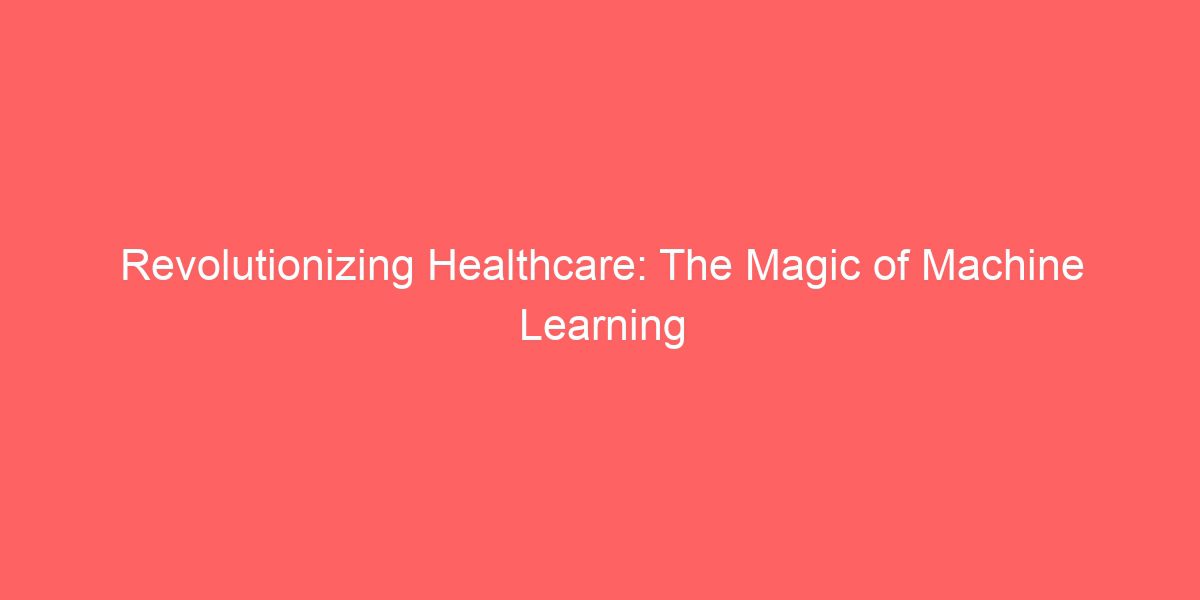Imagine an invisible hand that sifts through thousands of patient records, analyzes patterns in a blink, and predicts health risks with astonishing precision. This isn’t some figment of a sci-fi novelist’s imagination, but the reality of today’s healthcare landscape — thanks to Machine Learning (ML).
Why Machine Learning Matters in Healthcare
Machine Learning, an awesome subset of Artificial Intelligence, is known for its ability to learn from data, and iteratively improve performance without being explicitly programmed to do so. As the healthcare industry generates a staggering amount of data daily, ML emerges as a game changer, rapidly transforming everything from diagnostics to patient engagement and administrative efficiency.
A Deeper Look Into ML in Healthcare: Where It Shines
- Diagnostics: ML algorithms can detect diseases early by recognizing patterns in complex biomedical data that are generally missed by human eyes. It can potentially save lives by detecting cancers, predict heart diseases, diabetes, and several other conditions with unmatched precision and speed.
- Treatment Optimization: ML plays a pivotal role in developing personalized treatment plans that cater to individual patient’s health needs, considering factors like genetic predisposition, lifestyle, and more.
- Administrative Efficiency: ML enables streamlining administrative tasks, from optimizing scheduling to efficient processing of vast insurance data, reducing time and cost while improving patient satisfaction.
- Patient Engagement: Health apps utilizing ML can provide real-time health advice to users, recommend workouts, and monitor diet, thereby ensuring active participation of patients in their health journey.
What Challenges Are We Facing?
While the benefits that come in tote with the use of ML in healthcare are stupendous, there exist compelling challenges. Data privacy concerns, ethical considerations, and the necessity for transparent algorithms that healthcare professionals can trust and understand are imminent. Despite the hurdles, ML’s transformative potential cannot be underestimated and is eagerly awaited.
Are We Ready for the Future of Machine Learning in Healthcare?
As a technologist working at the intersection of machine learning and healthcare, I’m intrigued by the opportunities and challenges that lie ahead. The future of ML in healthcare is a tapestry of immense possibilities — predictive analytics for preventing disease outbreaks, personalized genomics, real-time monitoring to treat chronic conditions, enhancing mental health – the list is endless.
Frequently Asked Questions
1. Is Machine Learning in healthcare reliable?
While ML in healthcare shows extraordinary promise, it should always be used in synergy with human expertise to ensure reliability and safety. The great potential of ML lies in aiding healthcare professionals rather than replacing them.
2. What are the ethical concerns associated with the use of Machine Learning in healthcare?
While ML can undeniably be a potent tool in healthcare, it raises valid ethical concerns such as data privacy, consent for data use and the necessity for transparent, understandable algorithms.
3. Can Machine Learning replace doctors?
Machine learning is a tool to aid, not replace healthcare professionals. The empathetic human touch, intricate judgment calls, and years of fortified expertise that doctors bring to the table can certainly not be usurped by machines.
What Does This Mean to the Healthcare Ecosystem?
The day is not far when ML becomes a ubiquitous part of healthcare, enabling decision-making, transforming patient care, and improving lives at an unprecedented scale. As we stand at the edge of this transformative era, the shared wisdom of technologists, healthcare professionals, and ethical legal authorities is needed more than ever to navigate these new territories. Here’s to a healthier, ML-powered world!

